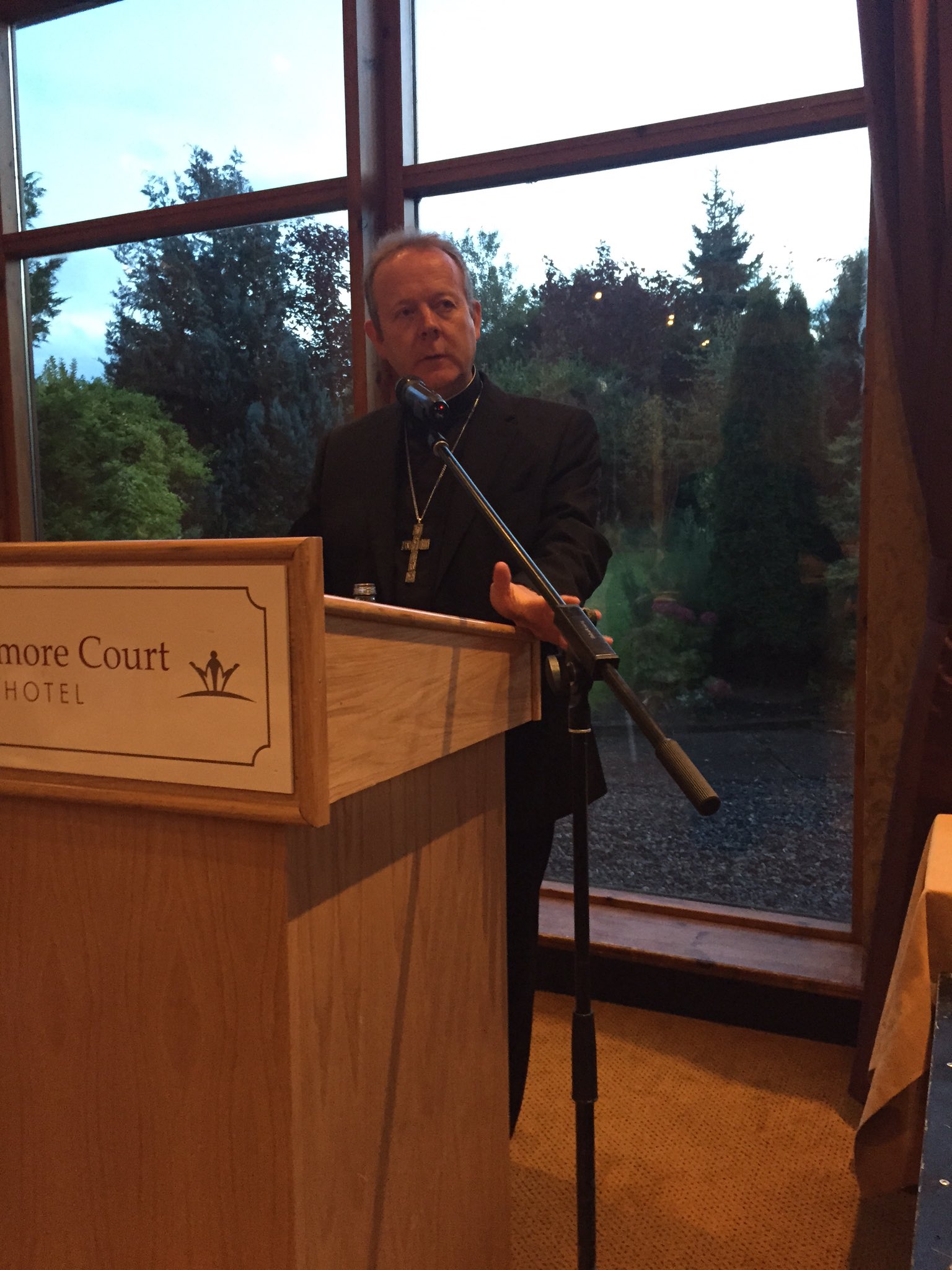Addressing the annual conference of the National Board for Safeguarding Children in the Catholic Church in Ireland, Archbishop Eamon Martin of Armagh paid tribute to the ‘resilience and fortitude’ of survivors of abuse.
At the conference, Archbishop Martin announced that the first Annual Day of Prayer for Survivors of Abuse will take place in Ireland next year. The Day of Prayer will take place on the first Friday of Lent, 3 March 2017. Archbishop Martin said that the Day of Prayer will “provide an opportunity at local level for parishes and congregations to pray for all those involved in the work of safeguarding, for healing in the lives of those deeply wounded by abuse, for atonement and ongoing purification of all members of the Church in this regard, and for raising awareness of the ongoing need for prevention of abuse in parishes, homes and families.”
Noting that this year’s conference includes a particular focus on two new standards in safeguarding, ‘Care for the Complainant’ and ‘Care for the Respondent’, Archbishop Martin said:
“Pope Francis, by establishing and fully backing the work of the Pontifical Commission for the Protection of Minors, has placed the healing of victims of abuse firmly within the work of the Gospel of Mercy. He sees outreach to those who have suffered abuse, and their families, as ‘an expression of the compassion of Jesus’. He has encouraged us to meet with victims and their loved ones, to listen to those who have suffered so greatly and to ask their forgiveness.
“This essential work is not easy for victims and survivors and it is challenging for all of us in the Church. And mistakes have been made. I have at times failed to realise how easily my own words and approach can unintentionally come across as hurtful or defensive to those who have been betrayed and let down by Church leaders or other personnel in the past. As I said at our first National Conference last year, I am humbled by the resilience and fortitude of those who come forward to share their painful memories. There are deep emotions involved and sensitive listening is needed so that the Church’s response, both during and after any investigation, is compassionate, merciful, pastoral, proper and just.”
He continued, “Responding to survivors is particularly challenging and sensitive when it comes to issues of redress and compensation. These issues also need to be approached with openness, respecting the right to justice for survivors, respondents and all concerned.”
He said, “It is important for us not to deflect from the immense hurt and trauma of complainants by considering care for those who are accused of abuse. The work of mercy, however, compels us to reflect on the impact of accusations on those accused, on their family members and their communities … For those falsely accused, it can be very difficult for them to overcome the mistrust and suspicion that sometimes accompanies lengthy criminal, civil and canonical processes … There remains much work to be done in this regard and I trust that the new standard and associated guidance will assist us with this effort.”
The two-day conference was held in Tullamore, Co Offaly, and was attended by 220 delegates from throughout Ireland, North and South, and included bishops, priests, members of religious congregations, safeguarding liaison personnel and voluntary parish representatives.
ENDS


